Mastering Effective Meeting Facilitation for Charity Professionals
Effective meeting facilitation, whether virtual or in-person is a skill we can refine and master. This topic often comes up during my Coaching and Leadership Strategy sessions, where clients have shared that they often feel worried about how they are perceived by others in the meeting, or perhaps struggle to maintain control of the planned agenda, leaving the meeting more confused than before.
So, as this has now been requested by two of my clients, I'm thrilled to share some practical guidance on agenda setting, facilitating conversations, ensuring inclusivity, asking open questions, and much much more!
1. Setting an Agenda:
Setting a clear agenda ahead of time is particularly important for those individuals who like to be organised and to feel confident in meetings. Having a clear understanding of your role in the meeting, your key objectives and the desired outcomes from all parties can ensure that you can prioritise key discussion points such as fundraising, project updates, and stakeholder engagement providing a structured approach and ensuring that limited time is optimally utilised.
2. Facilitating Conversations:
Guiding discussions with a collaborative approach creates a supportive atmosphere that encourages open communication, not only enabling meaningful contributions but also enhancing meeting dynamics and how people feel when they leave the meeting, a crucial element in achieving a successful outcome and productive working relationships.
3. Confident Interjecting:
One of the challenges frequently addressed in coaching is navigating discussions that veer off course, this can be particularly challenging if the discussion moves in a direction you don’t feel confident in. Learning to skillfully interject and gently steer the conversation back to the agenda has proven to be an invaluable skill in maintaining focus and ensuring that meetings remain productive. Paraphrasing can be incredibly useful in this instance, ensuring the other person feels heard while allowing you to ‘take the mic’ and then redirect the conversation back on topic.
4. Ensuring Everyone is Participating:
Inclusivity in meetings is important, as not everyone will feel confident to participate, but that doesn’t mean they don’t have value to bring. Actively encouraging quieter participants to share their insights encourages a diverse range of perspectives, enriching the collaborative experience and tapping into collective intelligence.
5. Asking Open Questions:
The strategic use of open questions has been a focal point in our coaching discussions. Incorporating queries such as, "How can we enhance our individual giving strategies?" prompts thoughtful responses, stimulating engaging discussions that drive progress within the charity sector.
6. Body Language:
Experts in interpersonal communication have estimated that nonverbal communication constitutes approximately 70% of what is involved in communication. In other words, only about 30% of communication involves the actual words that we use. So, when in meetings, be intentional about your posture, eye contact, and hand gestures - it has a huge impact on how you are perceived.
Top Tip: When in a virtual meeting, look into the camera occasionally, instead of solely looking at the image of the person you’re speaking with, this gives the feel of direct eye contact.
7. Time Management:
Efficiently manage time when scheduling meetings by allocating the right duration to cover what is needed. Then, during meetings, respect participants' commitment by staying focused on the agenda to ensure a streamlined discussion within the allocated time frame.
8. How you sell it, is how they’ll buy it:
Okay, stay with me, this isn’t about sales. Another way to put this would be: How you say it, is how they’ll hear it. If you sound unconfident, stressed, worried or unmotivated, that is how you will come across, often with less than desirable results. This is also not about being dishonest or hiding how you feel, there is simply a way to communicate that you don’t know something, or that something is unclear while maintaining your confidence. Focus on your body language, and tone of voice and confidentially address the issue head-on.
9. Follow up with Actionable Takeaways:
Concluding meetings with action points is a key aspect frequently forgotten if it isn’t clear who is taking responsibility for the follow-up communication. If you’ve called the meeting, it’s often your responsibility to collate action points and share them with those in attendance. Providing a clear summary of key points and responsibilities ensures a tangible roadmap for participants post-meeting.
If you are considering working with a coach to improve your confidence, click the link below to book a 30-minute video call to discuss how coaching can help.

